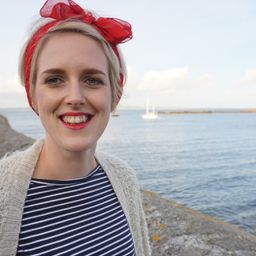12.00 Understanding "Audience": Exploring Knowledge Production in the Art Gallery
Mon statut pour la session
This paper is concerned with how “place” can potentially inform and transform the knowledge and practice of a particular institution, and, in turn, the impact that this institution may then have on the “place” in which it is situated, that is to say, its potential to change or transform both locations and people. Key to this process is to unpick the varying notions of “place,” including local, national to international conceptions, and how concrete or abstract these invocations of “place” may be, both in terms of the spaces that “place” relates to, and the people or communities who inhabit them. Indeed, there exists an embedded and persistent sense of dichotomy regarding the art institution and certain conceptions of “place,” namely that institutions must ensure that their collections and exhibitions have significance on a national and international stage, while remaining relevant and accessible to their immediate, local context.
This notion of binary opposition between collections and communities seems to be set in the minds of many. Yet this apparently simple dichotomy is, in fact, highly complex, encompassing both intangible and tangible factors, including the abstract conceptualisation of value and quality as defined by a seemingly mythical globalised “art world,” as well as a very physical rooting in the locality of the institution and the communities who inhabit these physical spaces. However, despite these complexities, there is still an endemic belief that these concepts of local/international, quality/community are essential and at odds, where committing to one will be at the detriment to the other.
Thus, this paper will explore the importance of “place” in knowledge production in and about the art gallery, and, whether these binaries and bounded categorisations of “place” and “community” are useful in our conception of both the institution and their audiences, existing and potential. The focus of this talk will be a reading of this issue through the prism of a particular gallery: The Hepworth Wakefield. I will explore how its local, national and international ambitions and responsibilities are formed and articulated by the Gallery as well as one of its key funders and founders, the Wakefield District Council; and, how these issues can be manifested in the gallery spaces themselves, concentrating on an exhibition from Spring 2016.
Through this exploration is it pertinent to discover if the concepts of local and community are consistently at the heart of programming or ethos of the Hepworth, or if the idea of translocal, or translocality may better describe the community consistently catered for at the Gallery. That is to say, the networked individuals and groups of “similarly-thinking people,” those arts-engaged, art-world “types” who are potentially located all around the country, if not the world. However, does this translocal community then subsume or obfuscate the responsibilities it has for its local communities in the traditional sense of the term? This paper will begin to unpick if it is possible to eschew the artificial, limiting and simple “either-or” dualism of international versus local, or artists versus community. Indeed, it will attempt to show that these various conceptions of “place”—whether networked and “translocal” and/or physically and spatially bounded—are integral to the formation of the institution, as well as the institution having a transformative effect on “place.”
